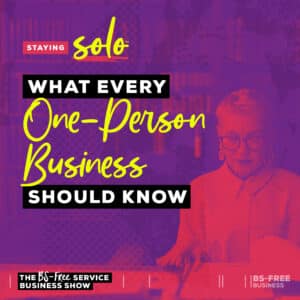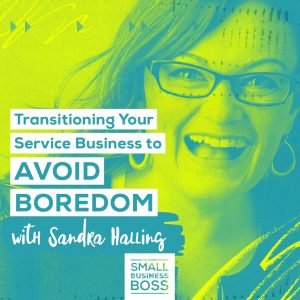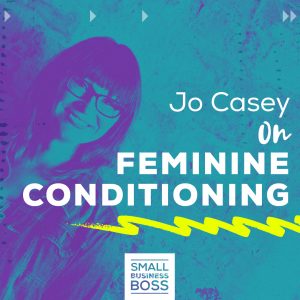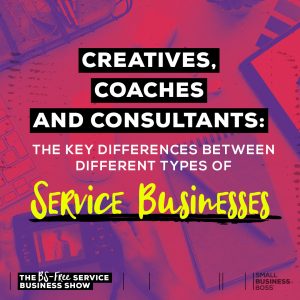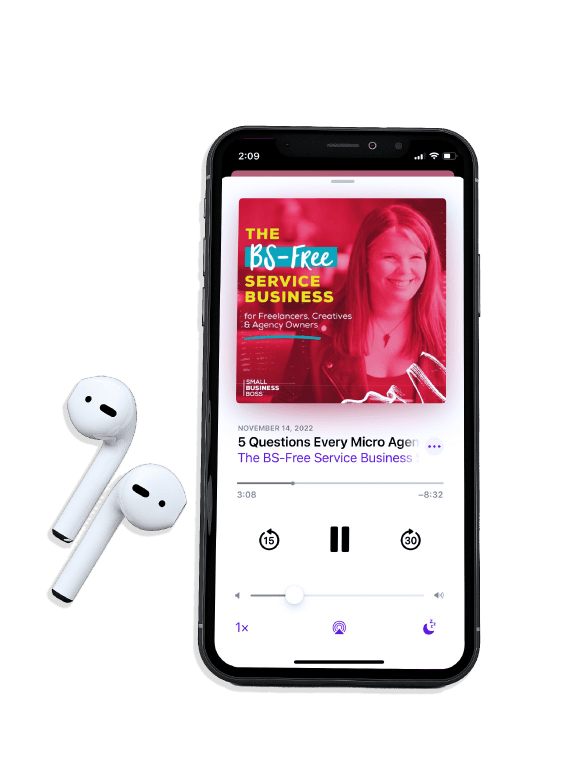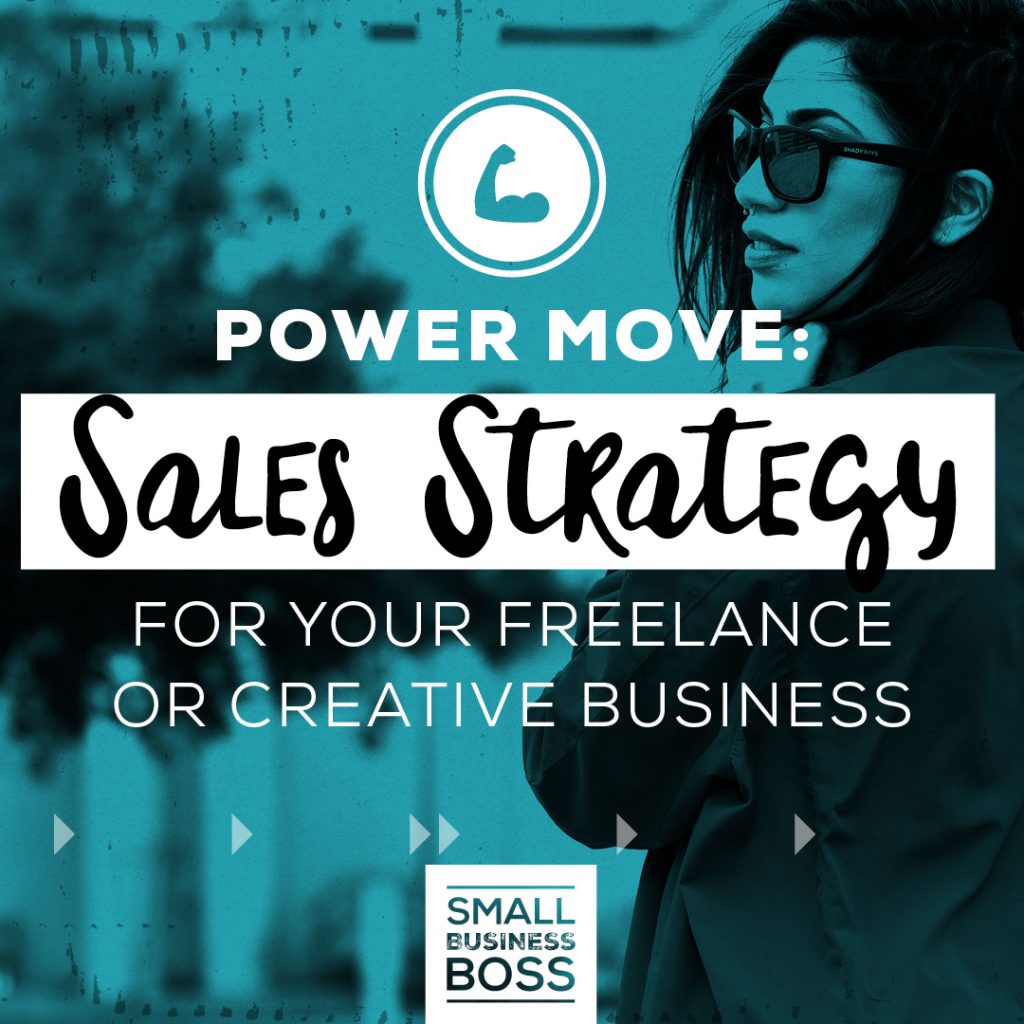
Search the site:
Episode 161: Power Move – Sales Strategy for Your Freelance or Creative Business
Poor sales. There are so many misconceptions about sales and the idea that you need to be pushy or sleazy to make things happen. In this episode, we’re going to think differently about sales strategy for your freelance or creative business.
We all want clients. We want them signing on the dotted line, but that part until they get to signing on with us, well, it can feel a little scary. I know for a lot of my clients, they may feel good about finding clients and then have fear about how to get them from interested to a yes, or they feel overwhelmed by all of it and would just like clients served up to them on a silver platter.
Here’s the thing: If you run a business, your ability to market and to sell to potential clients is critical. That means we need to get over all our hang-ups about sales and think about things differently.
Mindset
A little confession: It took me a long time to feel confident with my sales skills, but once I figured out a few key things about selling, everything got so much easier. Back in my agency days, I went to a training where my thinking of sales completely changed. It moved from being about pushing people to buy something to providing people with a solution to the problem they’re having.
So simple, but it immediately shifted my mindset, so I wasn’t hung up on all the things we’re taught about sales.
Much of sales comes down to mindset, so we need to ensure that we address that part of the puzzle. Unpack what you believe about sales and selling, and you can quickly become better at it.
Do you say things to yourself like:
- I’m not good at sales.
- I don’t know what I’m doing.
- I don’t like talking about money.
Saying those things to yourself — and potentially believing them — messes with your ability to grow your business and reach your goals. So, if there’s one thing you should invest your time and energy into on a consistent basis, it’s improving your mindset around sales and your actual sales skills.
I use the word skills, as that’s what sales is. It takes time to practice and to figure out what approach and style work for you and how to make it your own.
There are a lot of frameworks and trainings and advice out there on how to sell, which I believe can be a great starting point. But it’s never going to feel natural unless you find a way to make it work for you. Maybe it’s my rebel heart that keeps me from wanting to follow any single approach, but I don’t really do formulas, so just know you can develop these skills so you’re 100% you in the sales process.
For example, I’m sure the way I do consult calls would be open for debate with a lot of sales trainers. I keep it very casual, and I focus mainly on listening. In most cases, I do very little talking unless they have a lot of questions.
Plus, I show up exactly how I am, which some days is a trucker hat, other days it’s wet hair, and other days, well, you get what you get. I do aim to be professional, but we keep things casual around here, so I’m not going to show up in a power suit. The key for me is that our experience is consistent from the first touch to when they start working with us.
Sales Is a System
Enough about my sales approach; I want to get super tactical now so you have some specific action items to walk away with.
Starting with this: If you learn one thing it’s that you need to think of how you deal with potential clients and getting them to say yes to working with you as a system.
One of the biggest failings that tend to happen when people get into the sales process is that they make it stressful and time-consuming for themselves. By treating sales as a system in your business and taking the decision fatigue out of the process, you’re setting yourself up to be much more successful.
So, what elements do you need in your system? Sales as a service business owner really breaks into a few core areas:
- Packages and pricing
- Proposals
- Consult Calls
- Closing Process
We’ve touched on each of these on the podcast before, but let’s quickly run through them and where the opportunities are for you to eliminate complexity, and make your life easier.
Packages and Pricing
Even if you write custom proposals 100% of the time, you need to have some baseline packages to use as the starting point for your scope of work for clients. The same goes with pricing; you need some pricing scenarios based on what you know clients typically need.
This may sound super obvious, but you need these to help you know how to position yourself as the solution to the client’s problem, to save yourself time, and to avoid creating a million special offers for potential clients just because you can.
Maybe you don’t have these in place, and you need to create them. And if you already do have them, maybe they need a quick update, so you’re ready the next time you need to sell to a would-be client.
Proposals
Back in episode 157, we talked about what makes for a high-performance proposal, so I’m not going to go into a lot of detail of what to put in your proposal but rather talk about turning it into a system.
I’ve always had a pretty solid proposal template, but what changed things for me and made the proposal process less stressful was when I moved things out of Google Docs. Before, I was constantly working from an old proposal and then cobbling something together.
The move to Bidsketch enabled me to save hours (not even joking) creating proposals as I could literally take my templates and update them to the client’s specific needs.
While we recently moved to Proposify, the same holds true, and our proposals are now visually appealing.
Also, a big win for these types of tools is that you can see when the client opened the proposal, and with Proposify, I even know how long they viewed it and what sections they spent the most time on. (Interestingly, people really don’t spend that much time on professional fees!)
This data means I can tailor my follow-up in a way that helps to address specific questions and ensures I know they read the proposal!
Think about how you’re doing proposals today and how you can do it in a way that’s simpler and adds more intelligence into the process.
Consult Calls
First order of business here is looking at what you do on the call. Do you offer strategy? Is this really something they should be paying for? If so, stop that. The purpose of the call is to find out what they need, see if you can help, and talk about next steps. It is not to get into the nitty-gritty of their project and start providing advice.
A consult call should be reserved for people who you’ve prescreened; you should not be getting on the phone with just anyone. You need to ensure they’re serious and not just kicking tires. We do this by having a consult request form versus just a booking link. This helps us to ensure they’re a fit, and if we’re not sure, we ask a few more questions to prescreen them.
Finally, have a set amount of time for a consult. They shouldn’t be hour-long calls; 30 minutes max should be more than sufficient. And if you’re not great at keeping those calls to a shorter amount of time, your job is to take control of the agenda so they tell you what they need, you talk about how you can help, and then you outline next steps.
Closing
Finally, you need a process in place for what happens once you send that proposal. Again, deciding in advance on what steps you follow with your potential clients is key as then you can’t get too up in your head. I personally use a three-part system with prewritten emails to follow up once I’ve sent the proposal. Let me tell you, these scripts work because I just do what I’m told by Basecamp, and send the email versus getting into stories about why they’ve not responded and so forth.
Links for the Episode:

I’m Maggie Patterson (she/her), and services businesses are my business.
I have 20+ years of experience with client services, am a consultant for agency owners, creatives, and consultants, and vocal advocate for humane business practices rooted in empathy, respect, and trust.
Help Not Hype
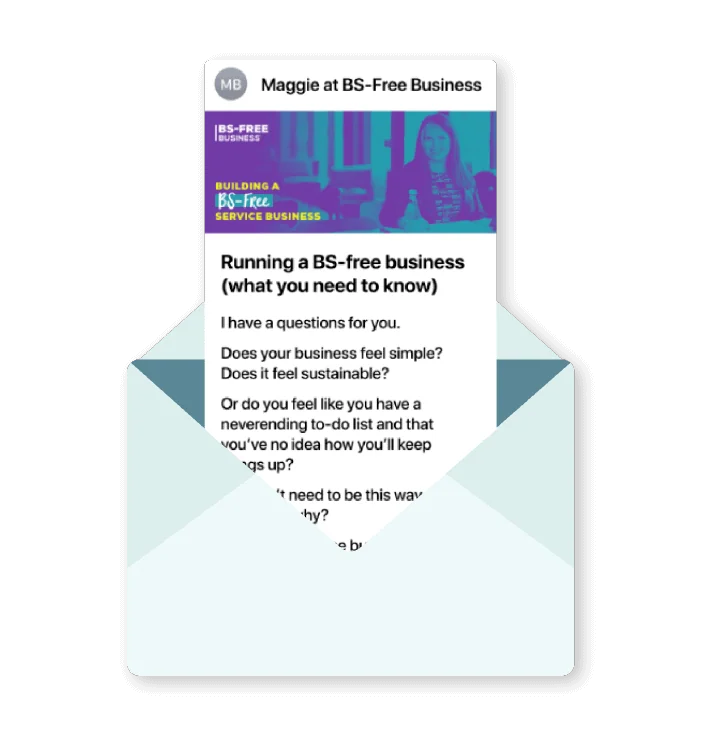
Tired of the same old BS business advice?
I got you with weekly emails packed full of proven strategy that makes a real difference in your service business.

